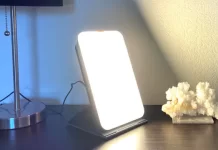Your nervous system controls your sensations, movements, thought processes, and feelings. It is made up of the spinal cord, brain, and a complex network of nerves extending throughout the body.
The nervous system’s ability to react to stress and perceived threats is one of its key functions.
This reaction is frequently referred to as “fight or flight.” Stress can cause an increase in heart rate, blood pressure, and breathing, as well as a decrease in immune system and digestive system performance.
Your nervous system may occasionally find it difficult to return to its usual state, even if this response might be required in the short term.
Uncomfortable stress reactions can also occasionally be brought on by non-threatening circumstances.
By understanding how to restore your neurological system to normal, you can lessen your chance of developing long-term health problems brought on by stress and enhance your mental well-being.
Here are 5 simple ways to lower stress and relax your nervous system:
Deep Breathing
Deep breathing is one of the easiest and most efficient methods for calming the nervous system.
The “4-7-8” strategy is one of the most widely used methods, albeit there are no hard and fast rules. It includes:
- Inhaling for 4 counts
- Holding that breath for 7 counts
- Letting out that breath for 8 counts
Meditation
Mindfulness is practiced through meditation. This entails remaining mindful of the here and now and impartially examining your thoughts and feelings.
Usually, this exercise is performed in a seated or lying position.
By concentrating only on your breathing during meditation, you can establish a connection between the two. This is a practice that you can undertake on your own or with guidance.
Find out more about practicing meditation techniques.
Yoga
Yoga is a mind-body discipline that incorporates meditation, controlled breathing, and physical exercise.
During a yoga session, your body will be moved into a variety of positions and stretches.
Holding these stances for a few seconds to several minutes, the emphasis is on slow, deliberate breathing.
Yoga is a great way to de-stress, but it’s best to start slowly.
Progressive muscular relaxation
Tensing and relaxing various bodily muscles is known as progressive muscle relaxation. This method can ease tense muscles and encourage relaxation.
Start by briefly tensing a muscle, then let go of the tension and let the muscles relax. Apply this to a range of muscles, including your hands, fingers, shoulders, upper arm, and lower arm. Iterate this procedure using various body muscle groups.
Learn how to practice Progressive Muscular Relaxation with this easy to follow guide.
Pets
Your neurological system can benefit greatly from pet ownership in numerous ways. Engaging with pets has been shown in studies to lower levels of stress, anxiety, and depression.
Additionally, pets can reduce your resting heart rate and blood pressure. Oxytocin, a hormone linked to bonding and relaxation, is released when you spend time with a pet.
Companionship and a sense of purpose can also be obtained through pet ownership. If you are feeling lonely or socially isolated, this is helpful. While having a pet cannot replace medical care from a professional, for some people, it can be a useful addition to therapy and medication.
Learn more about how pets can lower stress and anxiety.






























